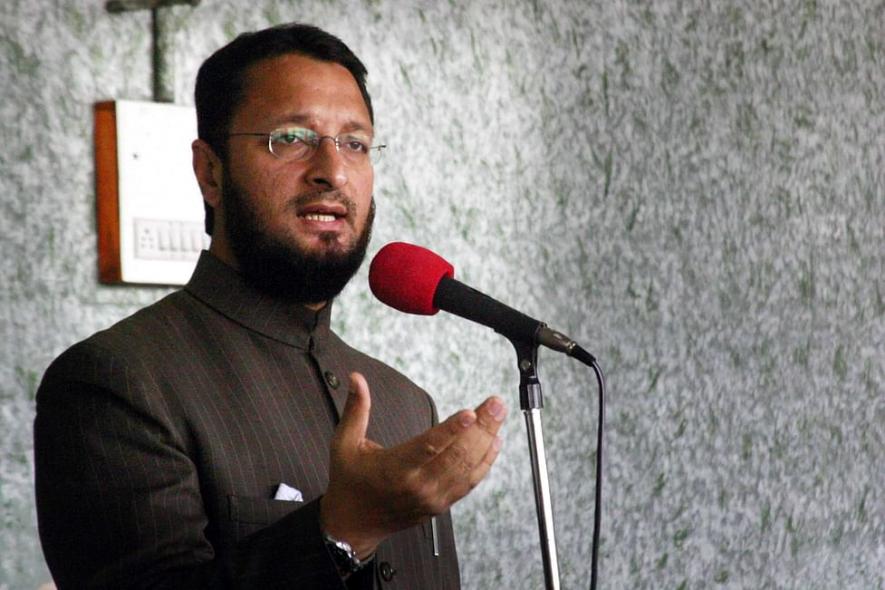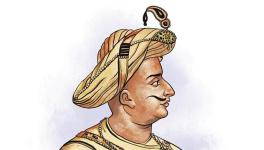Why Owaisi’s Ideas about Political Secularism Short-Change Muslims

Image Courtesy: Wikimedia Commons
In a recent campaign speech in Uttar Pradesh, All India Majlis-E-Ittehadul Muslimeen chief Asaduddin Owaisi called on Muslims to break free of political secularism to gain the correct kind of political representation. Owaisi was referring to the fact that Muslims have all along voted for so-called secular parties, including the Congress and other regional parties, irrespective of the fact that Muslim leaders were not leading them. Therefore, the argument he puts forward is that the Muslims should vote for a “Muslim party” represented by “Muslim” leaders as an antidote to political secularism.
We cannot deny that secular parties have short-changed Muslims and left them in the lurch politically. Muslims have been steadily slipping on social indicators as well. But will the solution offered by Owaisi work better for Muslims? What is the evidence to argue that Muslims will be better off merely by replacing voting for secular parties with voting a “Muslim party”? Consider, for instance, Muslims of the old city of Hyderabad, whom Owaisi his party have represented for close to half a century without imparting any dramatic social and economic mobility.
If anything, the AIMIM has followed the same logic of keeping Muslims vulnerable and extracting their consent. If anything, it has exploited their fear and anxiety by blocking any other alternative from emerging. Not only are Muslims made dependent on local networks for petty credit at high-interest rates, but they have to pay heavy donations to get seats in the medical and other colleges owned and run by Owaisi and his family. The AIMIM might offer psychological succour to the Muslims that members of their community are representing them, but that in itself guarantees next to nothing. If anything, it pushes Muslims into a perpetual vortex of dependence, seclusion and ghettoisation, that allows a party like the Bharatiya Janata Party (BJP) and the Rashtriya Swayamsevak Sangh (RSS) to consolidate Hindus further. This happens along the same lines that Owaisi seeks to consolidate the Muslims. In other words, Owaisi and the BJP work around the same logic of “competitive communalism”.
The Muslims of India need ways to break their social ghettoisation and gain economic mobility. Political representation makes sense only if it contributes to that process, not if it further consolidates the same techniques of encirclement. For this, the Muslims need a better “psychological and emotional identification” with the majority community and non-Muslims. This, in turn, would need to provide the desired rhetorical and moral justification for their betterment and stop the growing anti-Muslim sentiment amongst the majority community. Owaisi’s politics neither desires such an identification nor does it see any political advantage in helping such identification grow.
An excellent place to understand this is how Martin Luther King built the civil rights movement in America. While slavery and racism were rampant in the South, King appealed to the promise of equality and citizenship offered by the American Constitution. It was through a sustained campaign emphasising non-violence, integrity and civility that, over a period, King succeeded in creating an “emotional identification”, as cultural Sociologist Jeffrey Alexander argues, with the whites in the North. It was when the whites in the North joined the civil rights movement that the legitimacy of racism began to be questioned in the South and its self-claimed supremacy lost legitimacy.
Their counterparts in the North confronted the whites of the South through their interventions as lawyers, journalists, and politicians. They added velocity to the promise of the universality of the American Constitution. When King himself was attacked and his house set on fire, he appealed to his followers not to take to retributive action because the Blacks were protesting for a more dignified life for all. In this rhetoric and embodiment of the normative-universal, the deeply discriminatory practices of white supremacy lay exposed and without a feasible defence.
The Muslims protesting at Shaheen Bagh against the Citizenship Amendment Act, 2019, began on a right note by appealing to constitutional morality and citizenship and holding placards of Gandhi and BR Ambedkar. It was leaderless and mainly represented by Muslim women. Where they got waylaid was in their inability to appeal to the “Hindus” and demonstrate a normative-universal. They got reduced to protests by and for the Muslims, just what the BJP desired. However justified, the rhetoric that the anti-CAA protests produced through exclusive street protests and demonstrations by Muslim women would only create further anxieties that the majority have been socialised into.
Shaheen Bagh needed to demonstrate that being a Muslim was just one identity that Muslims inhabit and that they, too, think and live in multiple registers. They had to invoke the everyday symbolism of how they have similar aspirations for their children to get better education and jobs and had routinised private lives to foreground this commonality and an affable self. This, in effect, was a counter to the communal pitch of the BJP, while the anti-CAA protests appealed only to the State and courts. In contrast, farmers mobilised against the State and the BJP but appealed to society to gain larger and extended traction.
Leaders like Owaisi need to not appeal to break political secularism but mobilise their politics to support larger protest politics, including the recent farmers’ protests. He needs, for example, to encourage Muslims to join and support ongoing struggles for universal education. It is in making their presence felt in such inter-textual moves that the political logic of majoritarianism loses its edge.
Owaisi is doing the opposite: encouraging Muslims to ghettoise further, creating a favourable echo chamber for the BJP. This is what prompted farmer leader Rakesh Tikait to refer to Owaisi as the “chacha-jaan” of Yogi Adityanath, the Uttar Pradesh Chief Minister and BJP leader, who seems worried about those who speak of “abba jaan”.
Muslims alone can fight the growing majoritarianism, but not merely or exclusively as “Muslims”. Unless they find a way to make this switch, the good-natured support of liberal-left and secular voices can, at best, lend some confidence to the battered Muslims.
At worst, this support may unwittingly help further consolidate Hindutva politics. To most non-Muslims, it will continue to make their support look selective and like “appeasement”.
It is in visualising a new horizon beyond the likes of Owaisi that minority politics will stand to gain. The Muslims of Bengal did precisely that, and so will, perhaps, the Muslims of Uttar Pradesh. But this cannot end with not voting for AIMIM for strategic reasons. It needs to be supported by participation in other issues that may or may not concern Muslim communities directly or as Muslims. Even this alone will create the necessary pressure on the so-called secular parties that have not only taken the Muslims for granted but short-changed them despite gaining from their steadfast support for generations.
The author is Associate Professor at the Centre for Political Studies in Jawaharlal Nehru University, Delhi. The views are personal.
Get the latest reports & analysis with people's perspective on Protests, movements & deep analytical videos, discussions of the current affairs in your Telegram app. Subscribe to NewsClick's Telegram channel & get Real-Time updates on stories, as they get published on our website.
























